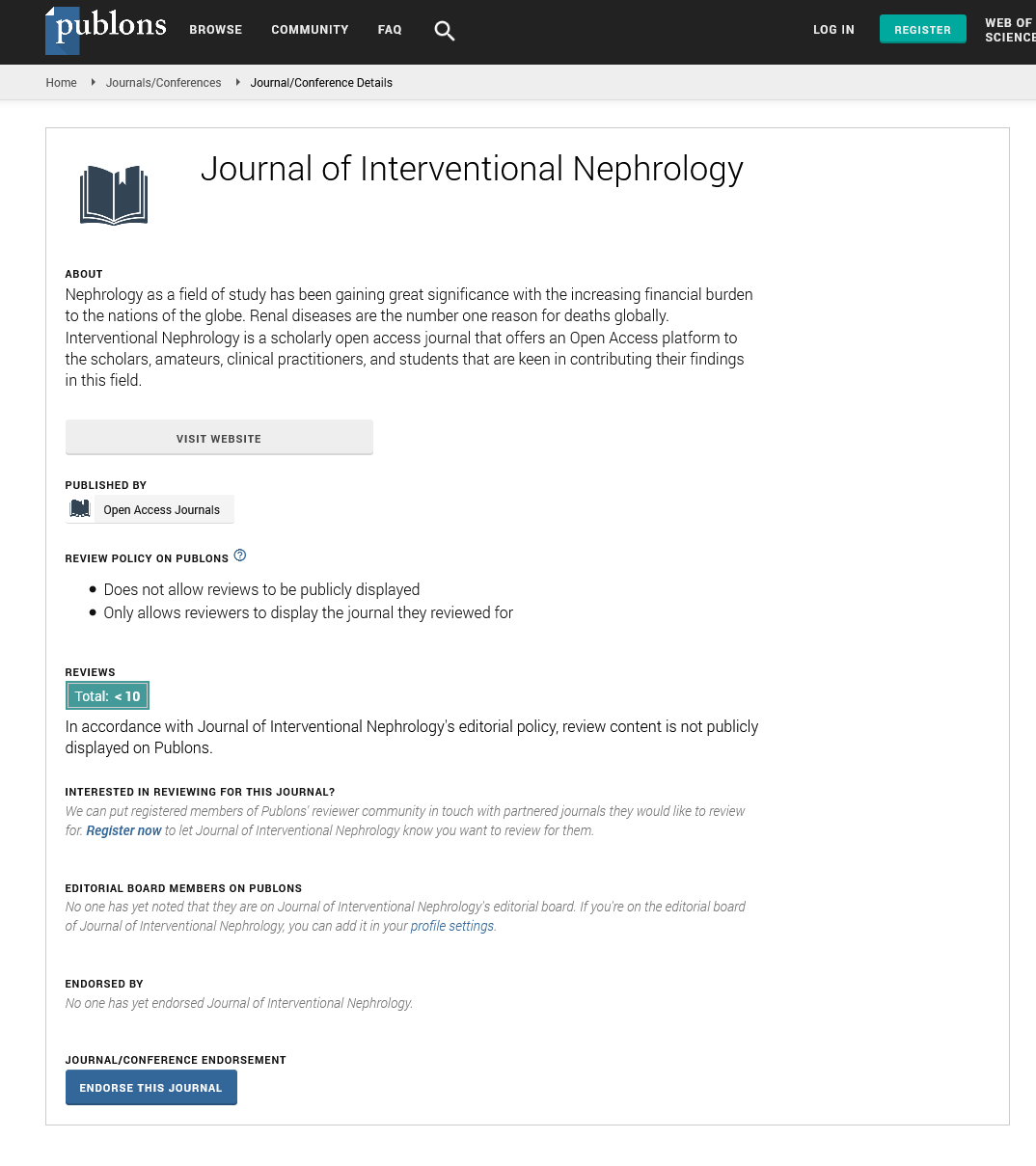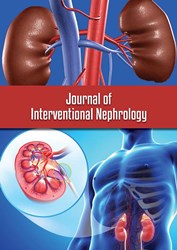Perspective - Journal of Interventional Nephrology (2024) Volume 7, Issue 5
Training and Certification in Interventional Nephrology: Pathways to Expertise
- Corresponding Author:
- David Sharma
Department of Medicine,
MVN University,
Italy
E-mail: SharmaDWS5789@QW.esedu
Received: 20-Sep-2024, Manuscript No. OAIN-24-148452; Editor assigned: 23-Sep-2024, PreQC No. OAIN-24-148452 (PQ); Reviewed: 07-Oct-2024, QC No. OAIN-24- 148452; Revised: 14-Oct-2024, Manuscript No. OAIN-24-148452 (R); Published: 23-Oct-2024, DOI: 10.47532/oain.2024.7(5).321-322
Introduction
Interventional nephrology has emerged as a pivotal subspecialty within nephrology, focusing on minimally invasive procedures to address renal conditions and complications. As the field advances, rigorous training and certification processes are essential to ensure that practitioners are equipped with the skills and knowledge required to perform these complex procedures safely and effectively. This article explores the pathways to training and certification in interventional nephrology, highlighting the importance of specialized education, skills development, and certification in advancing the field.
Description
The evolution of interventional nephrology training
Historical context
Historically, interventional nephrology was not a distinct subspecialty. However, as minimally invasive techniques gained prominence, the need for specialized training became evident. The development of formal training programs and certification processes reflects the growing recognition of interventional nephrology’s role in enhancing patient care and outcomes.
Current training landscape
Today, training in interventional nephrology is integrated into nephrology fellowship programs and supplemented by dedicated training courses and certification programs. These training pathways are designed to provide nephrologists with the expertise needed to perform a range of interventional procedures, including renal biopsies, dialysis access creation, and management of complications.
Training pathways
Nephrology fellowship programs
Core training: The foundational training in nephrology fellowship programs includes core competencies in renal physiology, pathology, and clinical management. This broad-based training is essential for understanding the context in which interventional procedures are performed.
Interventional nephrology focus: Fellows pursuing a focus in interventional nephrology typically receive hands-on experience with procedures such as percutaneous renal biopsy, placement of dialysis access (AV fistulas, AV grafts, central venous catheters), and management of complications. This experience is often obtained through direct supervision by experienced interventional nephrologists.
Dedicated interventional nephrology fellowships
Specialized training: Some programs offer dedicated fellowships in interventional nephrology, providing an immersive experience in advanced procedures. These fellowships focus on specialized skills such as ultrasound-guided interventions, complex dialysis access management, and treatment of renal complications.
Research opportunities: Dedicated fellowships often include opportunities for research in interventional techniques, contributing to the advancement of the field and the development of new practices.
Certification and credentialing
Certification by professional societies
American Society of Diagnostic and Interventional Nephrology (ASDIN): Anticoagulation management: ASDIN offers certification for interventional nephrologists, including the designation of “Certified Interventional Nephrologist.” This certification involves meeting specific training requirements, passing a comprehensive examination, and demonstrating proficiency in various interventional procedures.
Other certification bodies: In addition to ASDIN, other professional organizations may offer certifications or endorsements for interventional nephrology. These certifications validate a practitioner’s expertise and adherence to established standards.
Board certification
Initial certification: After completing fellowship training, nephrologists may seek board certification in nephrology from recognized boards such as the American Board of Internal Medicine (ABIM). While this certification is not specific to interventional nephrology, it is a prerequisite for subspecialty practice.
Maintenance of certification: Ongoing certification requirements, including Continuing Medical Education (CME) and recertification exams, ensure that practitioners stay current with advancements in interventional nephrology and maintain high standards of care.
Continuing medical education and skills development
Workshops and conferences
IHands-on workshops: Workshops focused on specific interventional techniques provide practical experience and skill development. These workshops often cover advanced imaging, procedural techniques, and complication management.
Professional conferences: Attendance at national and international nephrology conferences offers opportunities to learn about the latest research, technological advancements, and best practices in interventional nephrology.
Simulation-based training
Simulation models: Simulation-based training using models and virtual reality platforms allows practitioners to practice and refine their skills in a controlled environment. This training helps improve procedural accuracy and prepares practitioners for real-world scenarios.
Feedback and assessment: Simulation-based training often includes feedback and assessment components, providing valuable insights into areas for improvement and enhancing overall proficiency.
Challenges and future directions
Access to training
Regional disparities: Access to specialized training programs may vary by region, potentially affecting the availability of trained interventional nephrologists in certain areas. Addressing these disparities requires efforts to expand training opportunities and support remote or underserved regions.
Integration of new technologies
Emerging technologies: As new technologies and techniques continue to evolve, training programs must adapt to incorporate these advancements. Ongoing curriculum updates and professional development opportunities are essential for keeping pace with technological innovations.
Conclusion
Training and certification in interventional nephrology are critical for ensuring that nephrologists possess the expertise and skills needed to perform complex procedures effectively and safely. Through comprehensive fellowship programs, specialized training, and certification by professional societies, practitioners are equipped to enhance patient care and contribute to the field’s advancement. As interventional nephrology continues to evolve, ongoing education and adaptation to new technologies will play a key role in shaping the future of this essential subspecialty.
In summary, the commitment to rigorous training and certification underscores the importance of expertise in interventional nephrology, driving improvements in procedural outcomes and patient care. By investing in education and professional development, the field can continue to advance and provide high-quality care for patients with kidney-related conditions.


